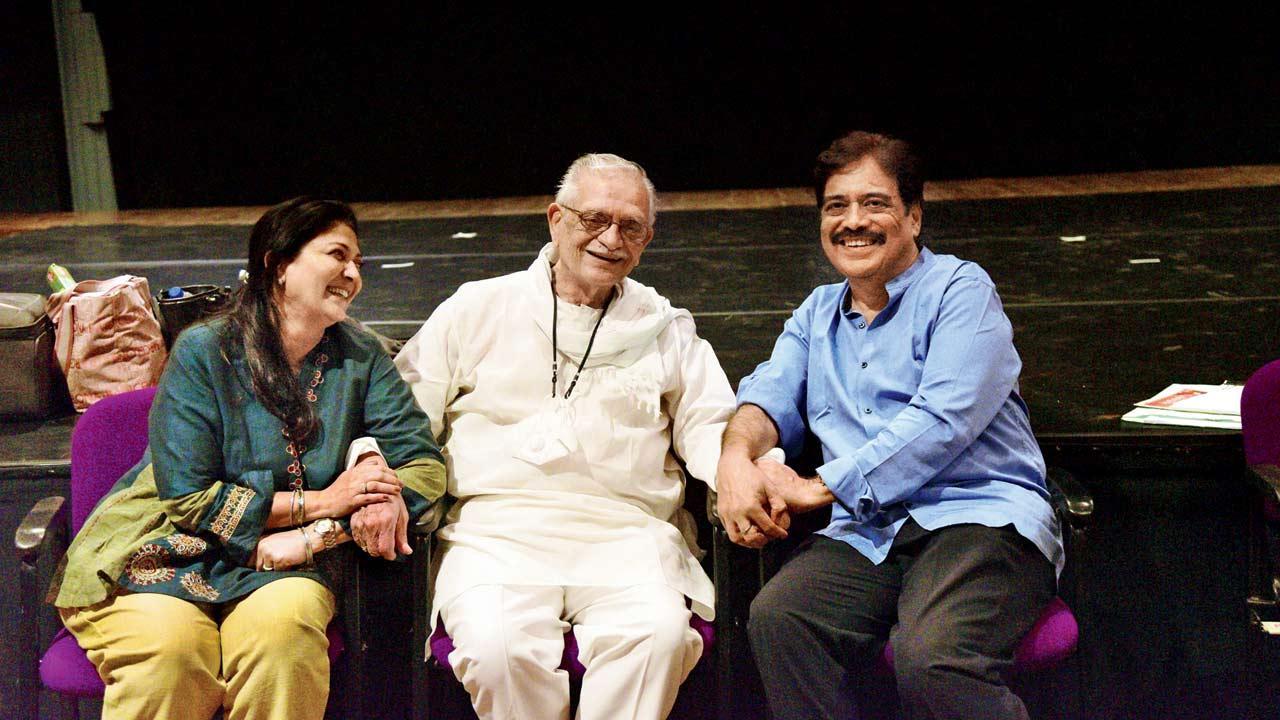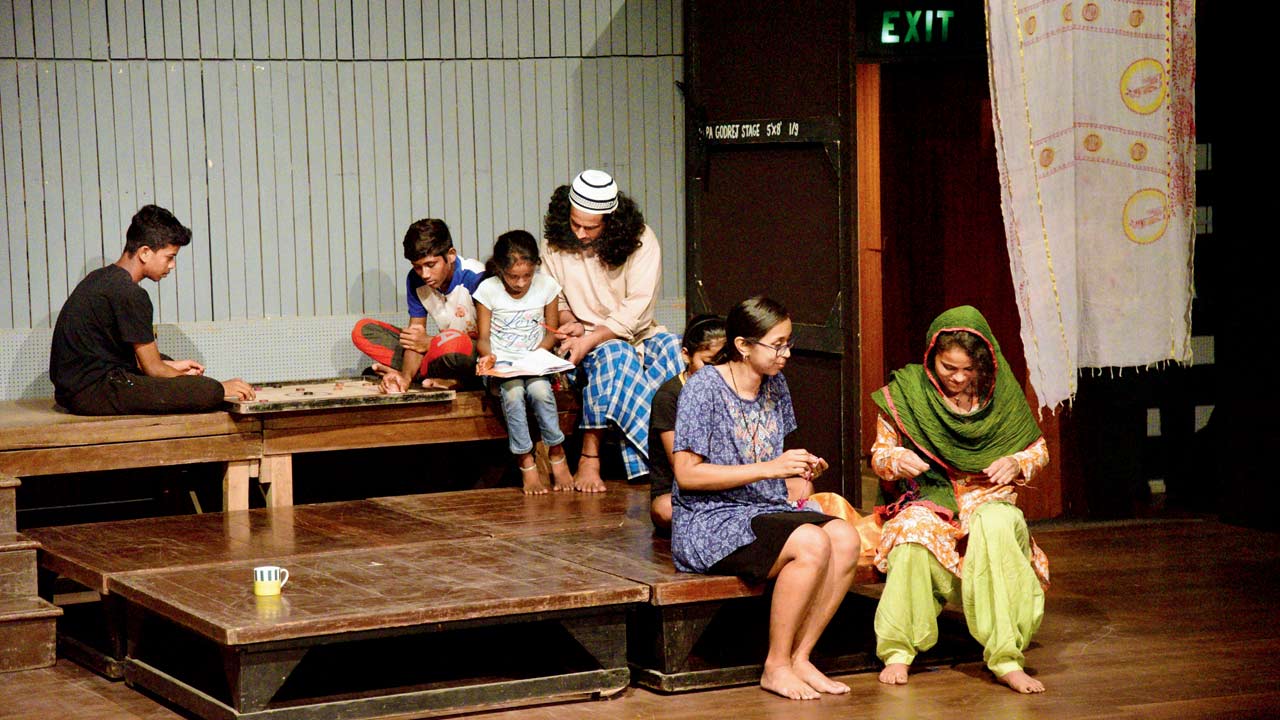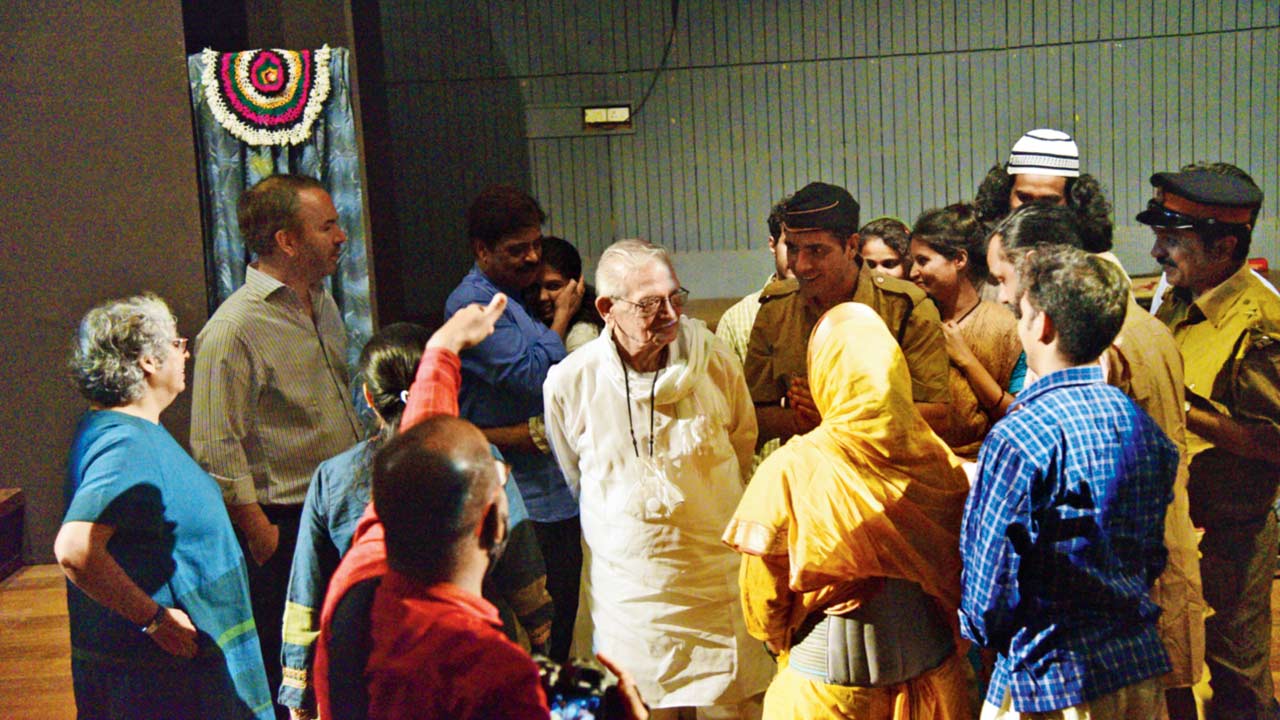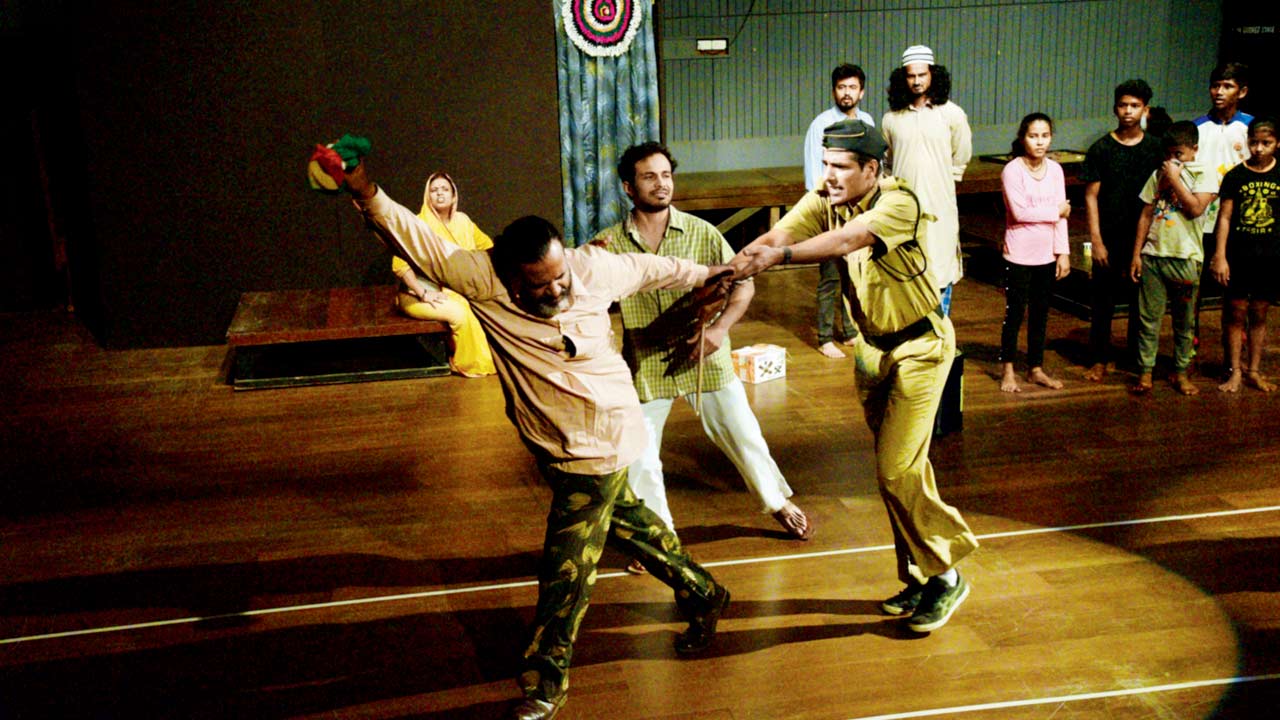Born in a realm ruled by children, theatre director Salim Arif’s play, which is based on Gulzar’s story, packs in a couple of nuanced lessons for adults, too

(From left) Lubna Salim, Gulzar and Salim Arif. Pics/Pradeep Dhivar
In another world, this writer wishes she was Boski. Boski, no less than a fictional character who has reserved a room in our minds, got a book from her father each time she added a year in her cap. Books as birthday gifts — as precious an idea that is — puff up with love when the gift-giver pens it. And Boski, as our beloved poet Gulzar endearingly calls his daughter, is a permanent resident in our hearts through her birthday book series.

Trained actors and underprivileged children share a moment on the stage
Theatre practitioner Salim Arif shares, “When Meghna [Gulzar] was about to enter her teenage years, Gulzar Saab wrote Boski Ke Kaptan Chacha. The wish to translate it on stage has stayed with me for long.” And when he finally decided to work on it, he requested Gulzar to take a fresh look at the text. The director tells us his relationship with the magician of words is both cordial and relaxed: “If there’s a change I wish to introduce, he has to be in the know.” Can we call the play a children’s drama? — to that Arif responds, “Such categorisation might limit its prospects. It is a play for everyone. Both adults and kids can enjoy it, and the fun part is that kids teach grown-ups here.”

Gulzar meets actors after a rehearsal session
When Gulzar sits down to explain the worlds in which the Boski series was born, we know it’s not everyday. He says writing for children is a literary pursuit he has been keeping at since long. While writing for his daughter, he would often ponder how age prompts thought transitions: “How does a six-year-old talk? How different is an eight-year-old’s spoken word from that of a 12-year-old? Noticing these subtleties helped me learn from my own child. I strongly believe any author can best learn from their children,” he notes, adding that a parent might want to pass on specific sentiments without imposing them on their kid — and what sweeter way than wrapping them in the folds of a story?
Boski Ke Kaptan Chacha, like other books from the sequence, follows that idea. Arif and Gulzar collaborated to mark the 75th year of Indian Independence. The poet regales, “Not just kids, but even present-day adults are unaware of facts related to the National Flag. Details such as the significance of the Ashok Chakra or the context to all the colours on our flag befuddle many. How is Republic Day dissimilar from Independence Day in import? The original text and the play, too, address these areas in a light-hearted manner.”
 A moment of action from the rehearsal
A moment of action from the rehearsal
While Gulzar regrets that not too many stage acts are written for children nowadays, he pointedly mentions his most favourite bit about Arif’s production is Arif himself. For the director, the drama stands out in singularity, as it brings together actors from different classes of the society and makes them part of crucial dialogue. “In this piece, older actors have worked with kids who live in Versova’s slums. I have hosted a few workshops to initiate the kids to theatre. It was important for me to create an ensemble that joins hands as a family but not with homogenous backgrounds. Professional actors should also know how a child from the slum thinks or reacts to situations,” Arif elaborates. On any special performative feature he would like audiences to observe, the director assures, “Let’s just say they will be in for a surprise.”
However, master creator Gulzar’s faith in kingdoms ruled by children seems to have come full circle during the rehearsals: “In one session, I met the narrator of Boski Ke Kaptan Chacha. Long ago, when she was a kid, she had played Pinocchio in one of my plays. When she came and met me, I asked her if she has grown big, how has her nose been left behind!”
On: May 15, 4 pm to 5.15 pm
At: Experimental Theatre, NCPA, Nariman Point
Log on to: insider.in
Cost: Rs 360 onwards
 Subscribe today by clicking the link and stay updated with the latest news!" Click here!
Subscribe today by clicking the link and stay updated with the latest news!" Click here!








